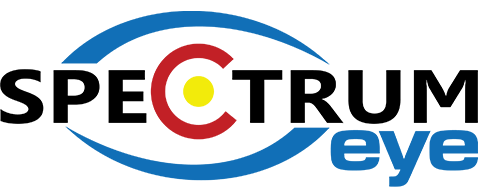As we all know, digital devices have become a ubiquitous presence in our daily lives. From smartphones and tablets to televisions and computers, screens are everywhere. This prolonged screen time can have a negative impact on our eye health. But what exactly is the impact of screens on our eyes? In this blog post, we will explore how screen time affects your eye health and what you can do to protect your eyes.
Digital eye strain
Digital eye strain, also known as computer vision syndrome, is the most common eye condition associated with screen use. Symptoms include blurry vision, dry eyes, headaches, and neck and shoulder pain. While anyone who uses screens regularly can experience digital eye strain, some groups are at a higher risk than others. People who work at a computer for extended periods are more likely to experience symptoms. The risk is also higher for those over 50 and people with uncorrected vision problems.
Dry eye
When people use digital devices, they tend to blink less frequently than they do during other activities. Blinking helps spread tears across the surface of the eyes, keeping them lubricated. A reduced blink rate during screen use can lead to insufficient tear distribution and dry, irritated eyes. To prevent dry eyes, it’s essential to take frequent breaks, use eye drops, and practice eye exercises such as blinking and eye massage techniques.
Myopia
According to studies, excessive screen time can increase the risk of myopia in children. Myopia occurs when the eyeball grows too long and causes distant objects to appear blurry. Children with myopia are at a higher risk of developing other eye problems later in life. Reducing screen time and encouraging children to spend more time outdoors can help prevent myopia. For children who have already been diagnosed with myopia, myopia management services can slow its progression and help your child avoid serious eye health issues in the future.
Poor sleep
Screens can also have a significant impact on our sleep. Blue light emitted from screens can suppress the production of melatonin, the hormone responsible for inducing sleep. This means that staring at a screen before bed can affect our ability to fall asleep and get quality sleep. Avoiding using screens before bedtime can minimize the impact of screens on our sleep. If you must use a device, consider using a blue light filter or switching to night mode.
How to reduce the impact of screen time
To help reduce the impact of digital screens on your eyes, here are a few tips to follow:
Use night modes
Many devices have a night mode function that reduces the amount of blue light emitted by your device. Using night mode can reduce the amount of blue light that reaches your eyes, reducing the strain on your eyes.
Adjust your screen settings
Adjusting screen settings such as brightness, contrast, and font size levels can be helpful. Increasing the font size and contrast is also better for your eyes. When the text is bigger and the contrast is just right, you won’t have to squint or strain to read anything.
Reduce screen time
Reducing screen time or taking frequent breaks from screens is essential to prevent eye strain. One way to minimize screen-related discomfort is by following the 20-20-20 rule. This involves taking a 20-second break every 20 minutes and focusing on an object at least 20 feet away. Blinking frequently can also help to moisten your eyes and improve focus.
Ensure your room is well lit
Proper lighting is critical for eye health. In dimly lit rooms, your eyes may work harder to see the screen clearly, increasing the risk of eye strain and other visual discomforts. On the other hand, too much lighting can increase screen glare and irritation.
Make sure to position your screens away from direct light sources like windows or bright lamps to minimize glare on the screen. Ensure no light sources are directed towards the eye, as this may cause eye strain due to the contrast in brightness. Additionally, consider using task lighting, such as a desk lamp with adjustable brightness, to provide focused lighting for reading or specific screen tasks.
Consider computer glasses
Wearing computer glasses is an excellent way to protect your eyes from the potential negative effects of prolonged screen time. These specialized glasses are designed to optimize visual comfort and reduce the strain caused by digital devices. The doctors and team at Spectrum Eye Care in Colorado Springs can help you find the right computer eyewear for your visual needs and lifestyle.
Visit an eye doctor
Regular eye exams are critical to maintaining good eye health, especially for people who use screens for prolonged periods. Eye doctors can detect any underlying problems caused by excessive screen use and provide treatment solutions. Your optometrist can also advise you on ways to reduce screen time and protect your eyes.
As we continue to rely on screens for work, entertainment, and communication, it’s important to be mindful of the potential negative effects those screens can have on our eyes and vision. By following the tips above, you can keep your eyes healthy and prevent discomfort. Remember, regular eye exams are vital to monitor your eye health and address any concerns. Reach out to our experienced eye care professionals to schedule your comprehensive eye exam and learn how you can practice healthier screen habits.




